With this blogpost I want to share some of my experiences during my staying in China from November 28th until December 31st. I’m doing this for two reasons. First because I don’t want to repeat the same story to everybody who asks "Hey bro, how was China?", and second because I think it will be fun to re-read it in a couple of years. The main purpose of my China visit was to learn some Chinese (Mandarin). Other reasons were to get insights into a new culture and to meet new people.
Shanghai (上海)
I arrived in 上海 on a Thursday morning. After having changed some money, I bought a subway ticket to the city center. I didn’t really know where I had to hop off to get to my hostel since I couldn’t easily combine the map on my smartphone (maps.me) with the subway map. I later found out that maps.me has a subway layer, very handy! Since it was morning and I only had a light bagpack, I had the whole day to figure out how to get to my hostel. I chose to hop off somewhere which to me looked like the city center, I ended up in Hangpu District (杭浦区). From there I walked along the Bund for a while before crossing the river with a small ferry. I then got to my hostel an went to sleep (early). 上海 is very big. Maybe the biggest city I’ve ever been, for some reason I didn’t like it. There are big roads, tall buildings, big, very big shopping malls and nice parks. But what I missed was a soul. Maybe I didn’t go to the places to be. Maybe I was there but at the wrong time. Maybe I wasn’t ready for China. Maybe I was too jetlagged to appreciate this city. Who knows.
My favourite place in 上海 was a people’s park. It was an idyllic place inside this noisy city. There was someone playing some stereotypical chinese tunes on a guzheng. I guess the hour spent relaxing in the park listening to that music was the best experience I had in 上海.
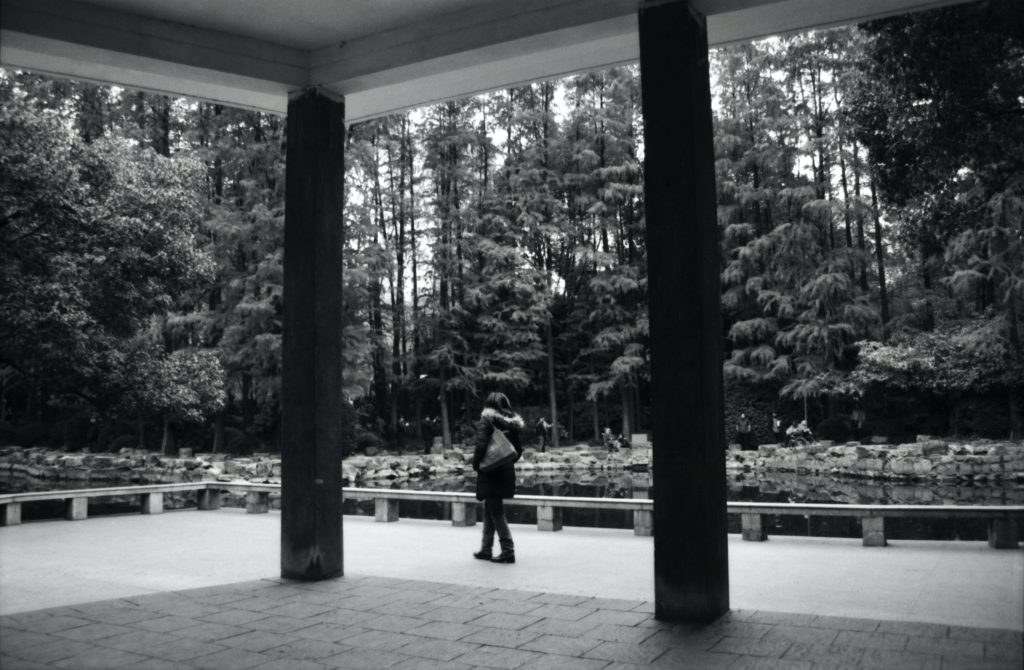
After having spent 2 days walking around aimlessly in 上海 I took a train to Guilin (桂林). Since I was not in a rush, I took a slow train. It took me a little bit more than 24 hours to get to 桂林. It was a nice experience, which I wouldn’t want to have again. I didn’t know what to do on the train. I only had a bed and no place to sit. So I was lying in bed the whole time. I slept, read, slept and read. And at night I couldn’t sleep anymore because I wasn’t tired. Bravo Mirco. On the next morning I eventually arrived in 桂林 and took a shared taxi to Yangshuo.
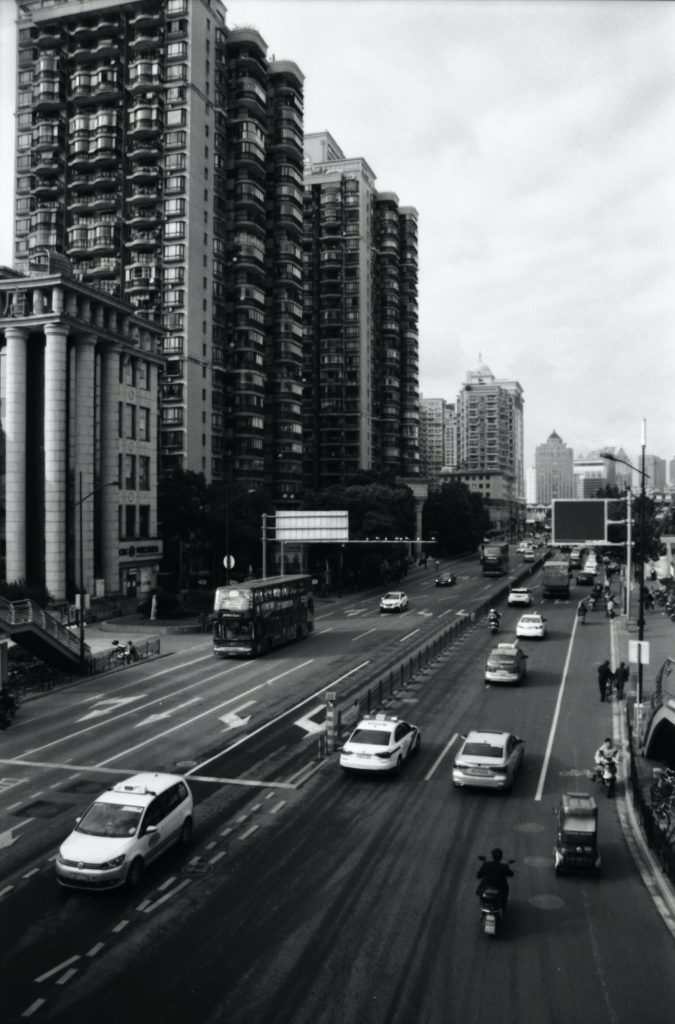
Yangshuo (阳朔)
阳朔 is a nice little town. Lots of little shops. People selling fruits and veggies on the sidewalks. I liked this place way more than 上海. There were lots of construction works going on. They were creating two new lakes, one near romance park and one next to 阳朔 park. Apparently, a government official is going to visit 阳朔 soon. Seams a lot of work for just a visit. In 上海 the lens of my camera broke. Once arrived in 阳朔 I wanted to buy a second hand lens. It seams that there are no camera and no second-hand shops in 阳朔. Since I wanted a new camera anyway, I bought an almost new Nikon F5 with a 50mm f/1.4 lens from Xian Yu, a chinese eBay. I’m glad to have a new companion.
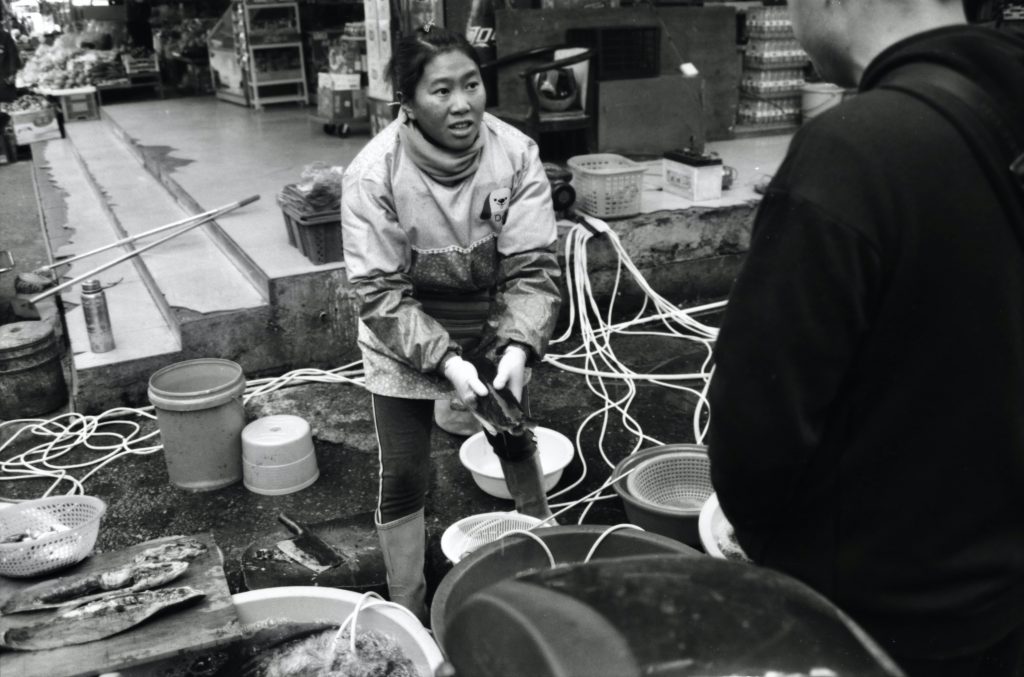
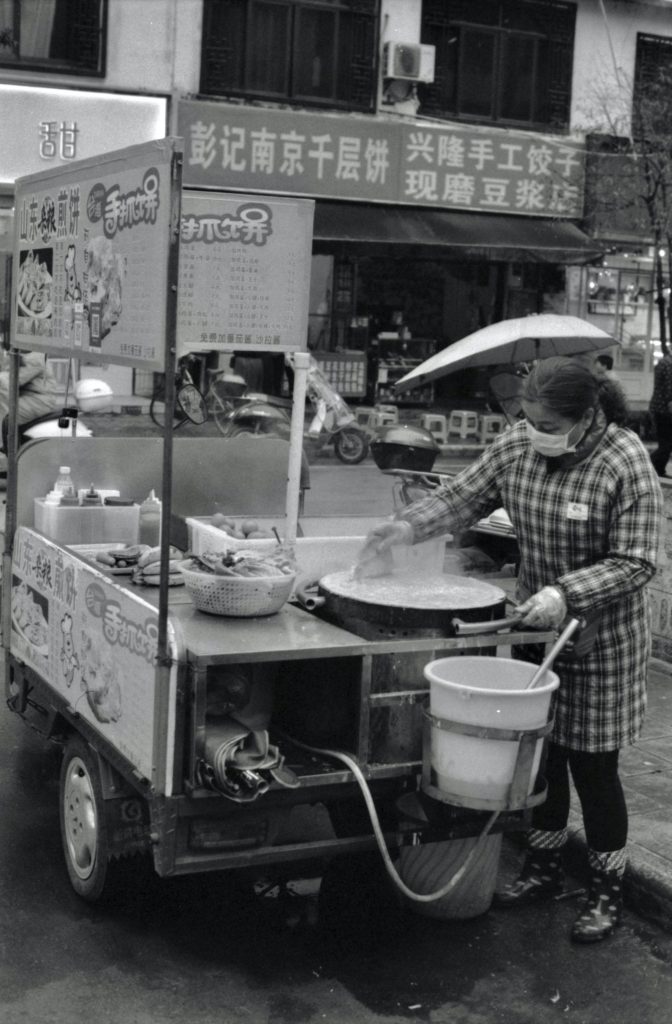
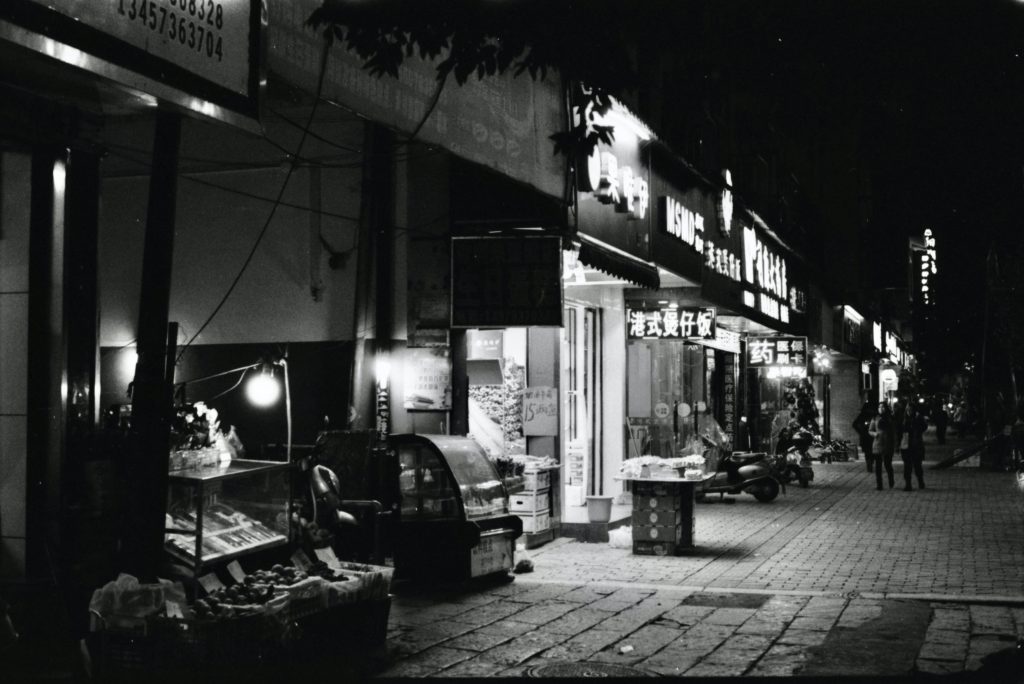
TV Tower
TV Tower is the name of a hill which is reachable from the city in about 30 minutes. I went there in the morning a couple of times, it became my favourite spot in Yangshuo. The view from the very top, where you have to pay 5元 to reach it, is very beautiful, given that the weather plays along.
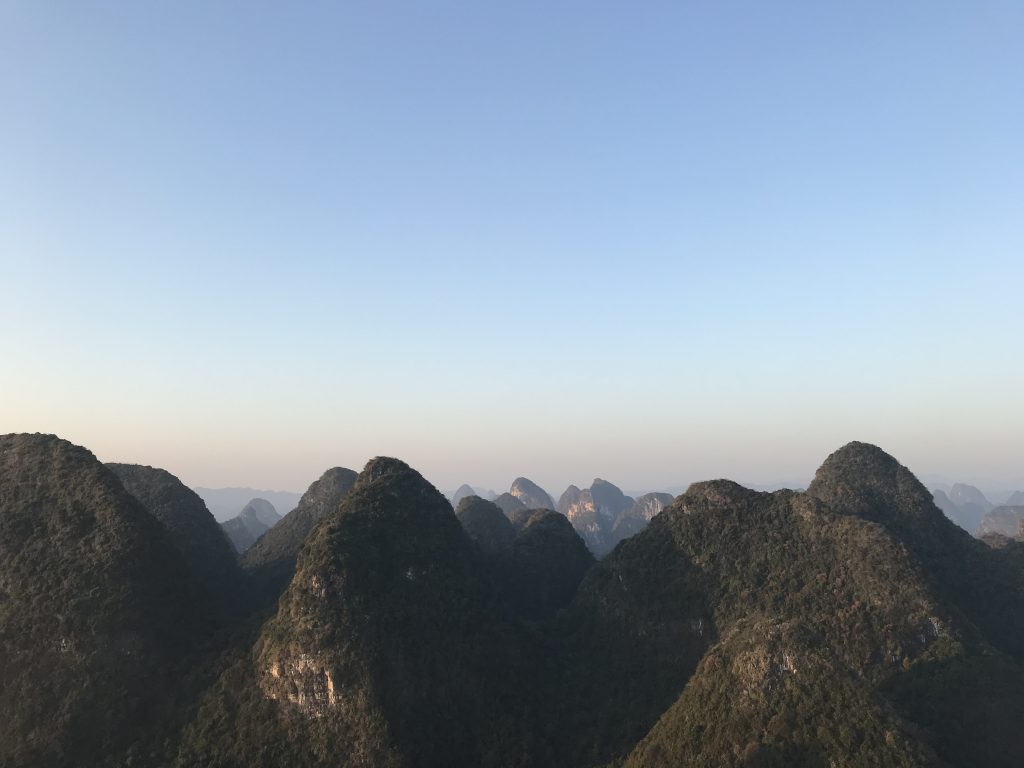
West Street
West Street (西街) is the recreation district of 阳朔. To me it was a little bit too modern and "fake" and didn’t really fit in, so I avoided it when possible.
Orange fields
I once made a little scooter excursion by myself. I found it strange how slow they drive there. I don’t know whether they drive that slow beacuse of the road conditions or simply because they are not in a rush. On my little excursion I saw a lot (really a lot) of orange fields. Maybe it wasn’t all orange fields since I think they use the term "Orange" for every orange citrus fruit (oranges, mandarins, clementines, etc).
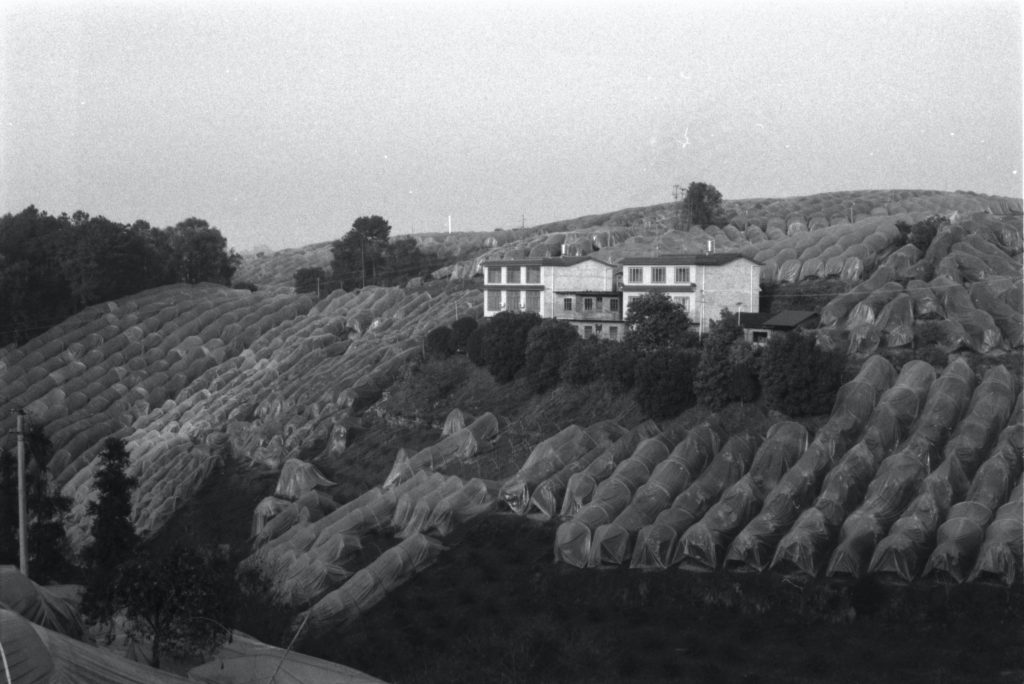
Running
I didn’t go running as often and as far as I wanted. I found some nice places where one can run. For a short run one might go to 阳朔 park or climb TV tower. There is also a nice path (approximately 3 km) behind romance park. For some long runs (or hikes) one might go along Yulong River. To get there you need to walk on roads for some time, but the landscape there is really worth it!
Omeida
I chose to go to Yangshuo because I didn’t want to stay in a big polluted city and Omeida Chinese Academy happened to be the only school there. The staff at Omeida was always very nice and helpful. Omeida is a good place to learn mandarin and to enjoy life. Every weekend they organize an activity, which allows you to explore the surroundings, get to know other people and learn about chinese culture. Omeida has an associated canteen. Very convenient. The food was good, but almost always the same. At first I ate there lunch and dinner. After the first week I cancelled my dinner since I wanted to eat more special local dishes, go out and explore 阳朔 and be more spontaneous about when and where to eat.
On Learning Mandarin
I’m a little bit dissapointed of my learning skills. I thought I would learn the language faster and better. But when you first have to learn a new way to pronounce words, cope with new sentence structures and learn a new writing system, maybe, but just maybe, one month is not enough. People who have stayed longer reccomend to study mandarin for a period of 3 month or longer. It gave me nevertheless the opportunity to fully immerse myself into a new world. It allowed me to nourish my curiosity without satisfying it. I made the mistake to attend an intensive course, which sum up to ~5h of class + ~1h of review + ~1h of homework = ~7h per day. I guess I can’t be focused on actively learning something completely new for 7 hours a day. And since the afternoon class was not the continuation of the morning class, there was a second learning book, another teacher, additional homework, other classmates, etc. Maybe it was an advantage to see the language from another point of view. I cancelled my morning classes for the last week. I think it was a good decision.
The first thing I had to learn was how to learn. Since I’m a visual learner, I like to see the words in pinyin and kanzi to learn them. Others may only need to hear and repeat them a couple of times to memorize them. You should optimize your learning process depending on your learning style. I started by taking handwritten notes in class. I figured out that I dind’t review my paper notes. I later began to apply the newly learned language points by writing a sentence in hanzi on a plain text document. While reviewing, I would add some comments, write the sentences in pinyin and translate it to english. When I was out with chinese friends and I learned a new sentence, I would add it with my smartphone to the same document (synchronized with git), ready to be reviewed later.
Another mistake I made was to go there without a proper goal. Why did I want to learn mandarin again? I guess curiosity in my case was not specific enough. Is my primary goal to be able to order a cold bubble tea with ice without milk without a plastic bag? Do I want to read chinese comics or newspapers? Or be able to flirt in mandarin? Or watch chinese movies? Depending on your goal you would put your focus either on the written or the spoken language. I tried to focus on both. While reviewing I tried to decompose the most common charaters and write them down from memory. During my "free time" I attempted to apply my newly aquired skills with local people or chinese friends.
Lessons learned from my mistakes, or things I would do different:
- Learn mandarin for a longer period, ideally 3 months or more
- Less is more, having only half a day of classes might be more efficient
- Learning mandarin with a clear goal is more fun
Changsha 长沙
After 4 weeks in 阳朔 I had to go back to 上海 to catch my return flight. I wanted to spend my remaining time in a city along the high speed railway between 阳朔 and 上海. I decided (or better: others who know China decided for me) to give 长沙 a try. After 2 hours of taxi, 4 hours of train, 30 minutes of subway and 10 minutes walking I eventually arrived at the city center of 长沙. I didn’t yet have any accomodation. Since I didn’t have mobile internet, I randomly picked a Youth Hostel on maps.me. After finding the correct floor by asking people (my first applied mandarin skills outside of 阳朔), I realized that it wasn’t really a Youth Hostel as the name suggested, more like a bed and breakfast. Unfortunately, the host couldn’t accept any foreigners. She was so kind to arrange me a staying in a nearby Hostel. Lovely person. In 长沙 I visited Orange Island (an Island on a river with a big statue of Young Mao), walked around randomly, tried some local (spicy) food, ate stinky tofu and hotpot. In 长沙 I said goodbye to people I’ve met at Omeida Chinese School which came to 长沙 with me. It was a strange feeling. I felt lost and sad for a moment. For 1 month I was constantly surrounded with people I knew, people I built a relationship with. And suddendly I was all alone, in a city with a couple of million people.
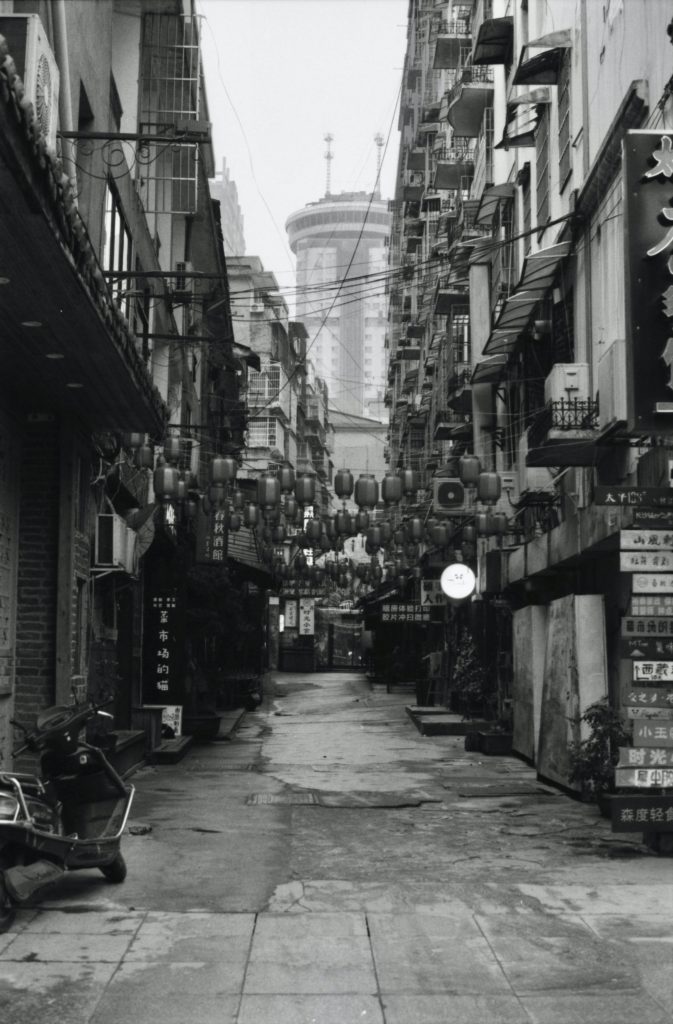
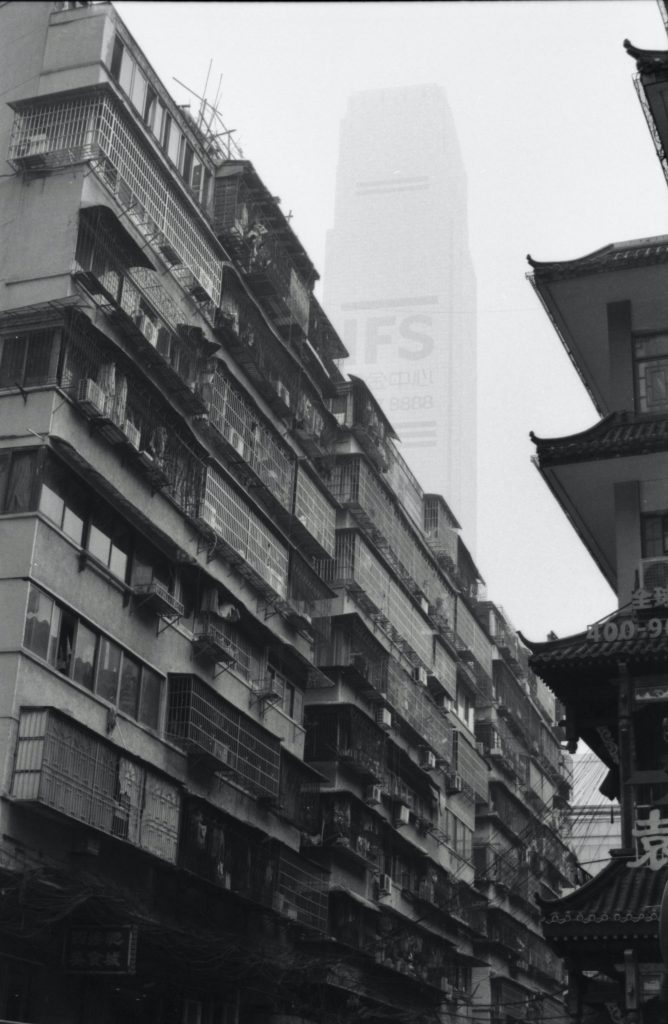
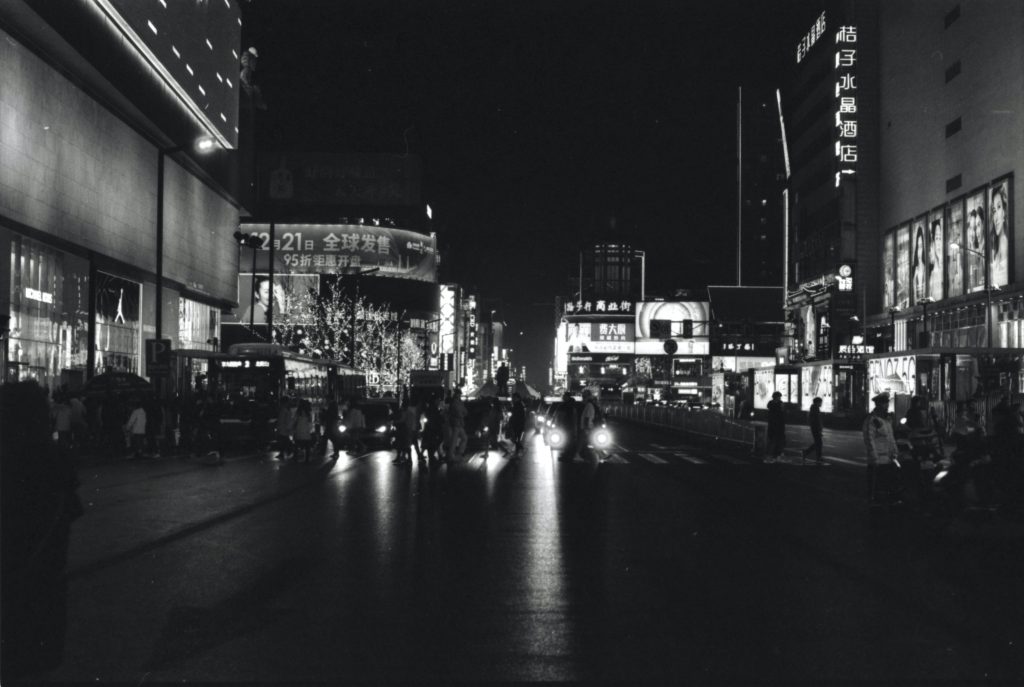
General Impressions
- I was surprised to see only electrical scooters in Shanghai. For that reason, Shanghai was not as noisy as other asian cities.
- What bothered me was their way to get on subways. A lot of people get on while there are still people getting off, making the process very difficult during rush hours. I don’t know why, but I tought (or maybe hoped?) they were a little bit more disciplined in this regard.
- They smoke in building, restaurants, sometimes on trains etc, very strange for someone coming from Switzerland.
- The Chinese people I’ve met (mostly teachers and students at the english academy) were all very nice. Before going to China, my ignorance let me believe that most Chinese were very serious and without humour. I’m glad I was wrong.
- The method of payment in China is WeChat Pay, replacing almost completely cash for local people. Unfortunately, for foreigners it’s not that easy to set up WeChat Pay since you need to associate it to a chinese bank account. With it you can make payments between friends, pay your DiDi (chinese Uber), your groceries and pay the fruits from the seller on the streets. I even saw a beggar accepting WeChat payments.
I hope you liked this short summary of my staying in China. I’m sure there are some mistakes, typos and unclear things. If you have any suggestsions, comments or questions, just let me know.
Cheers Mirco
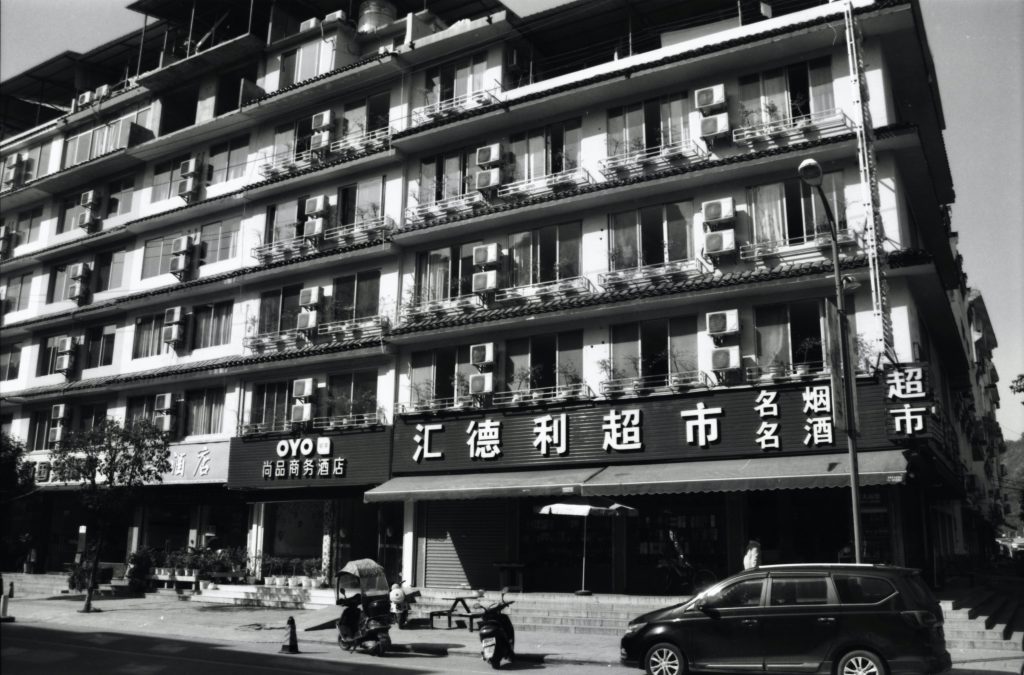
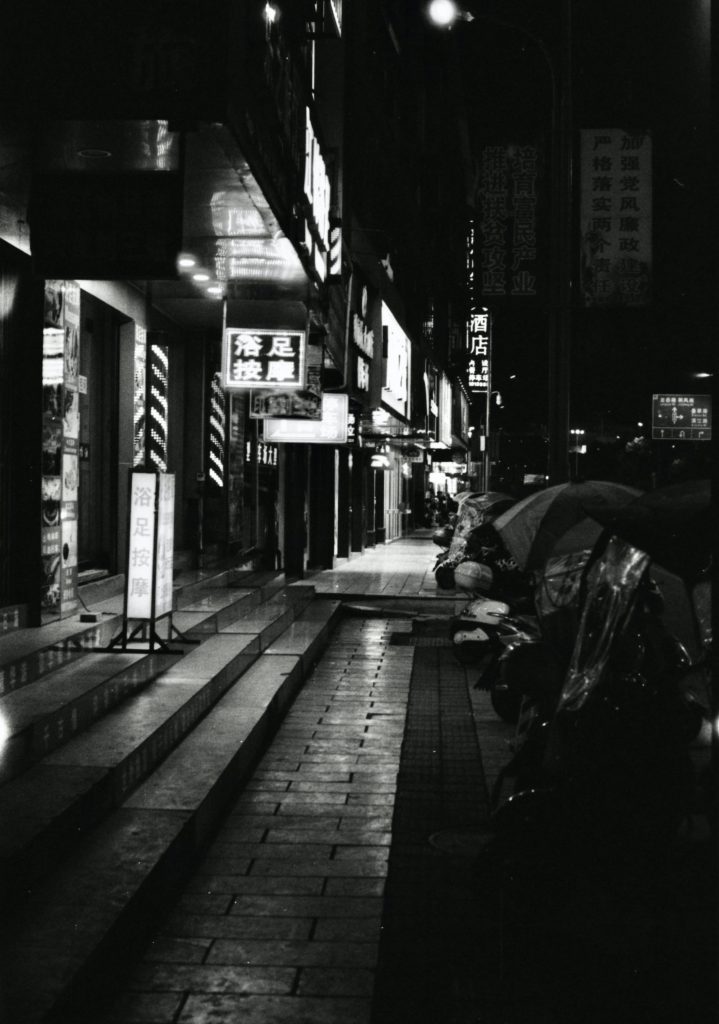
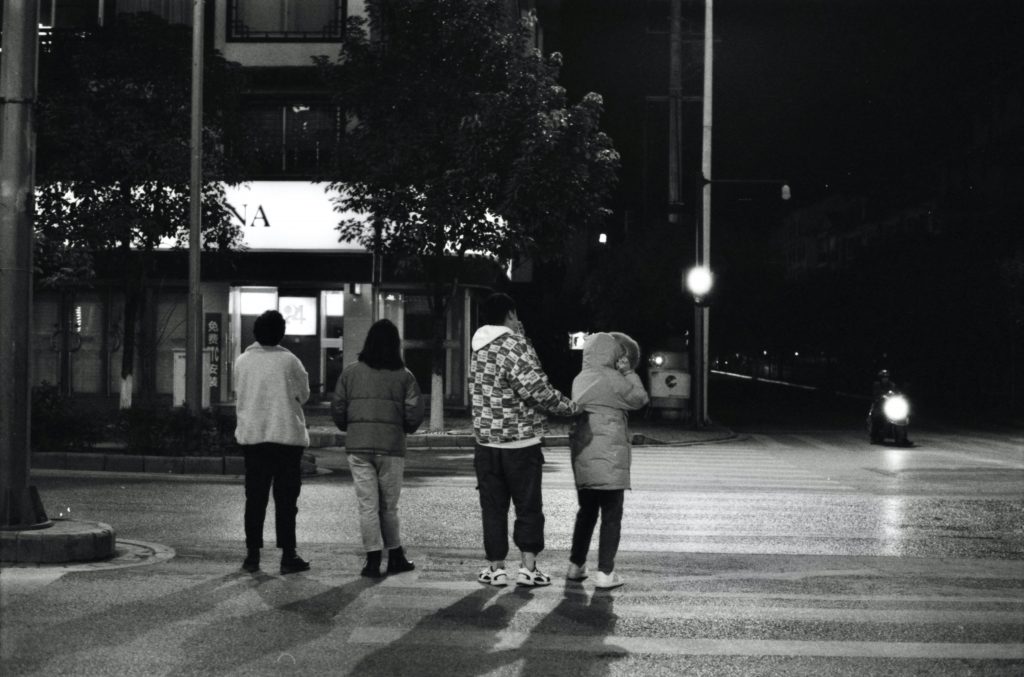
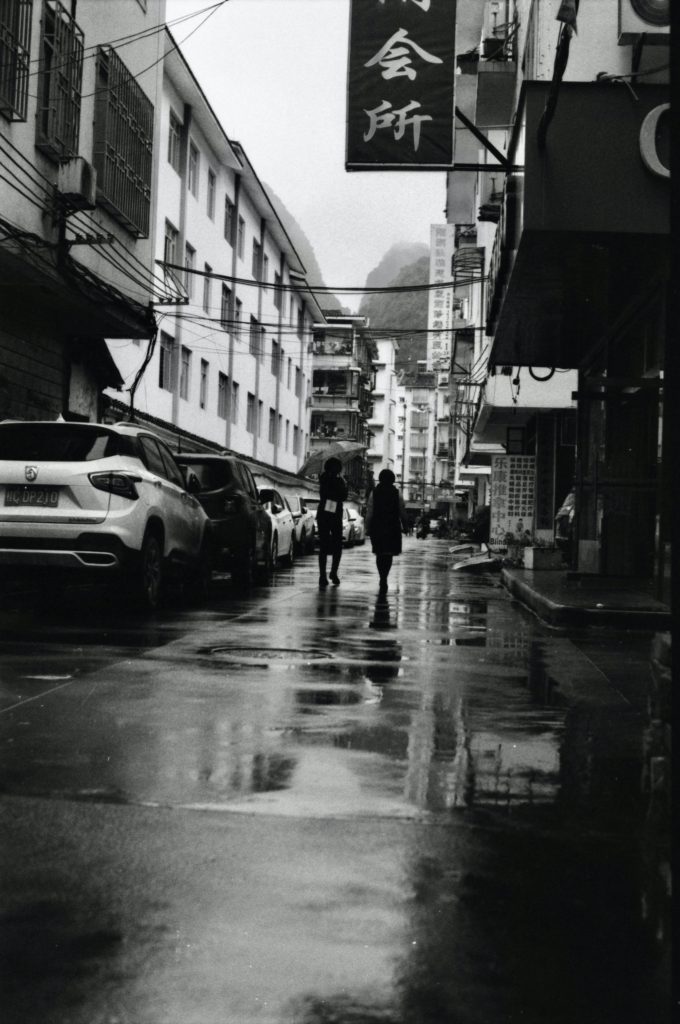
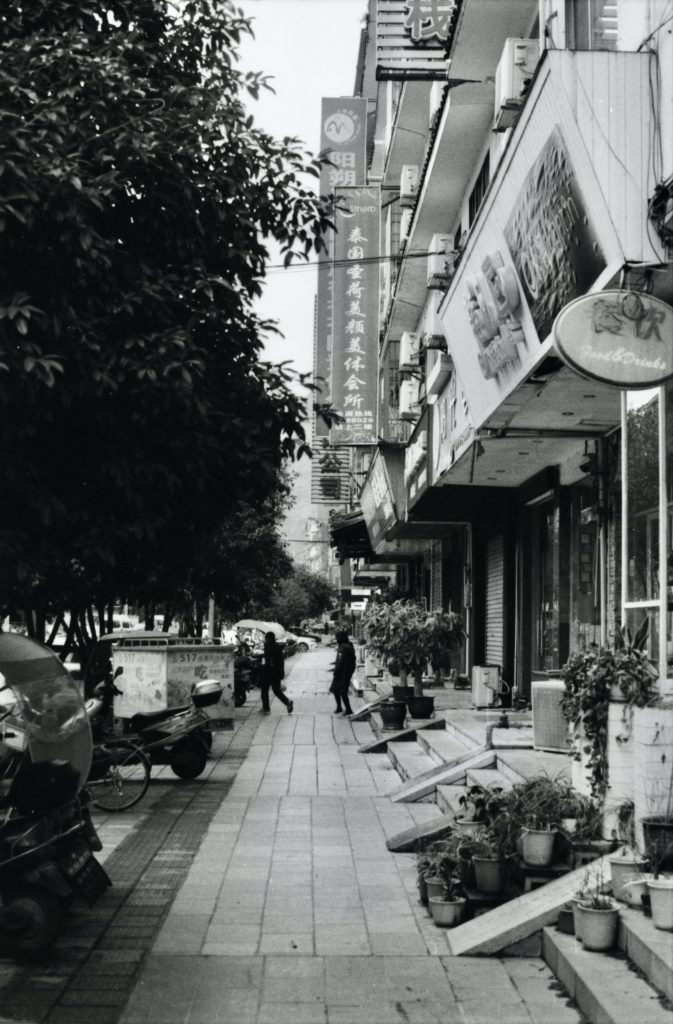
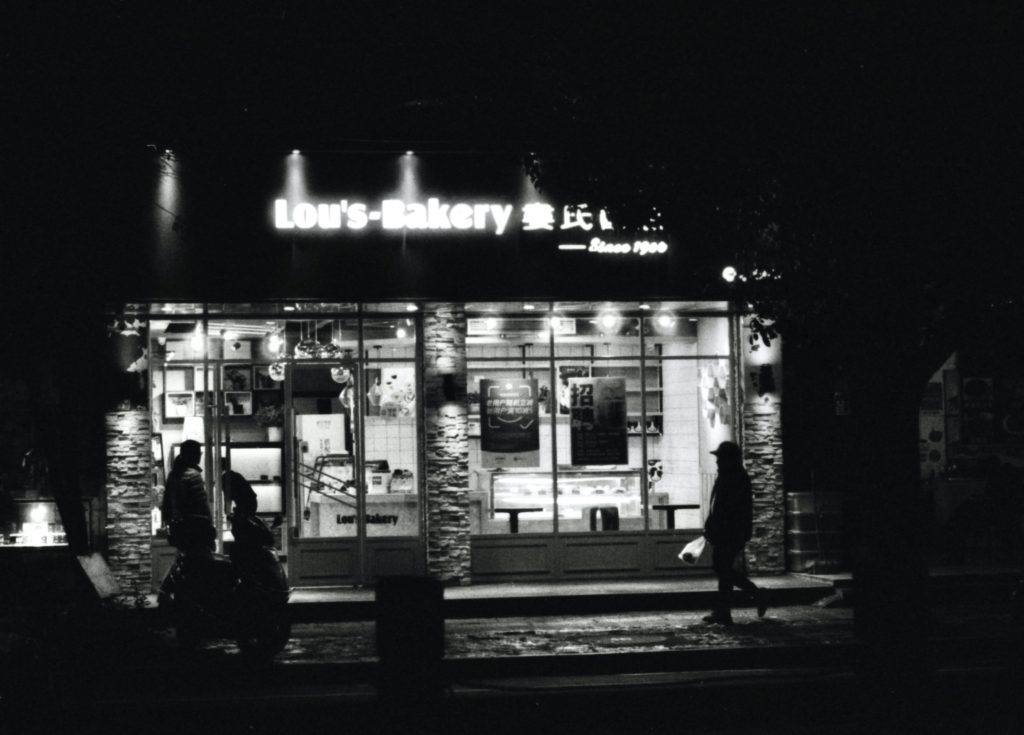
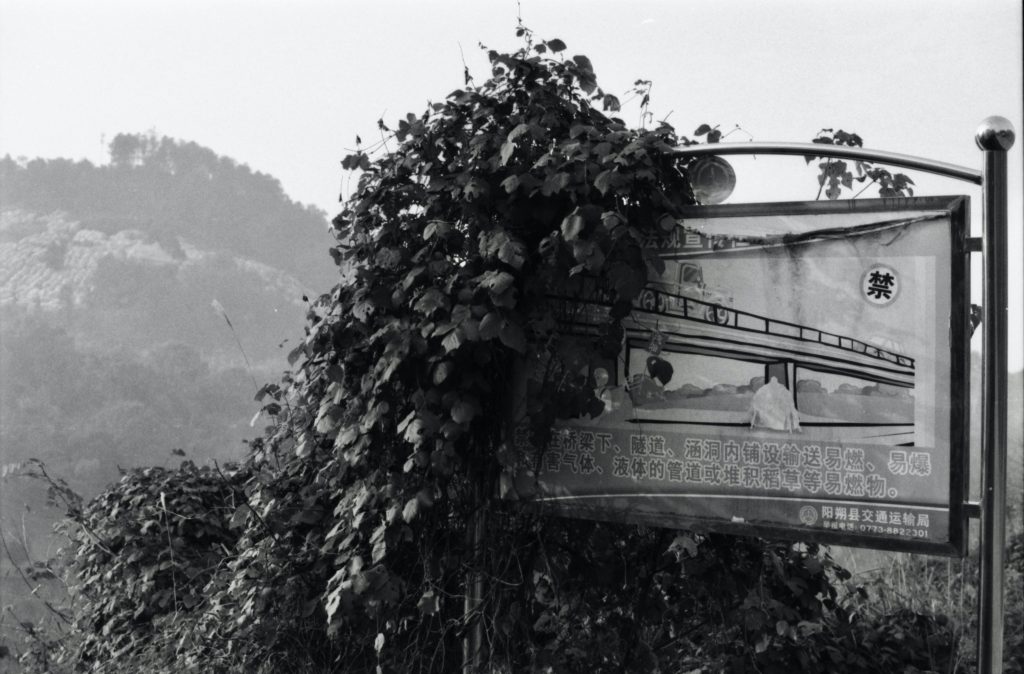
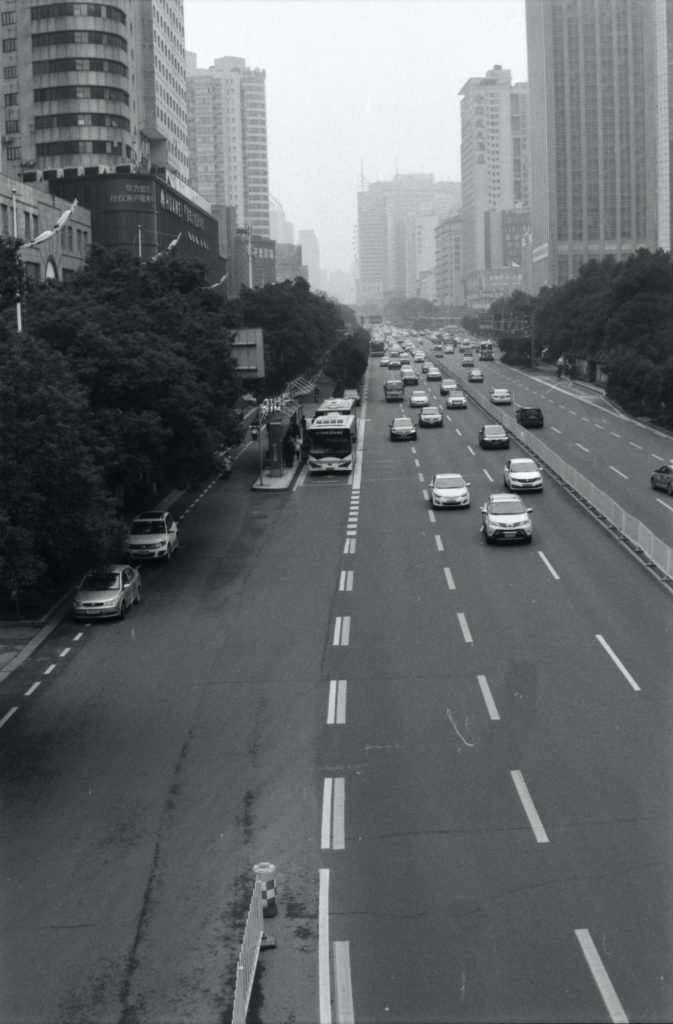
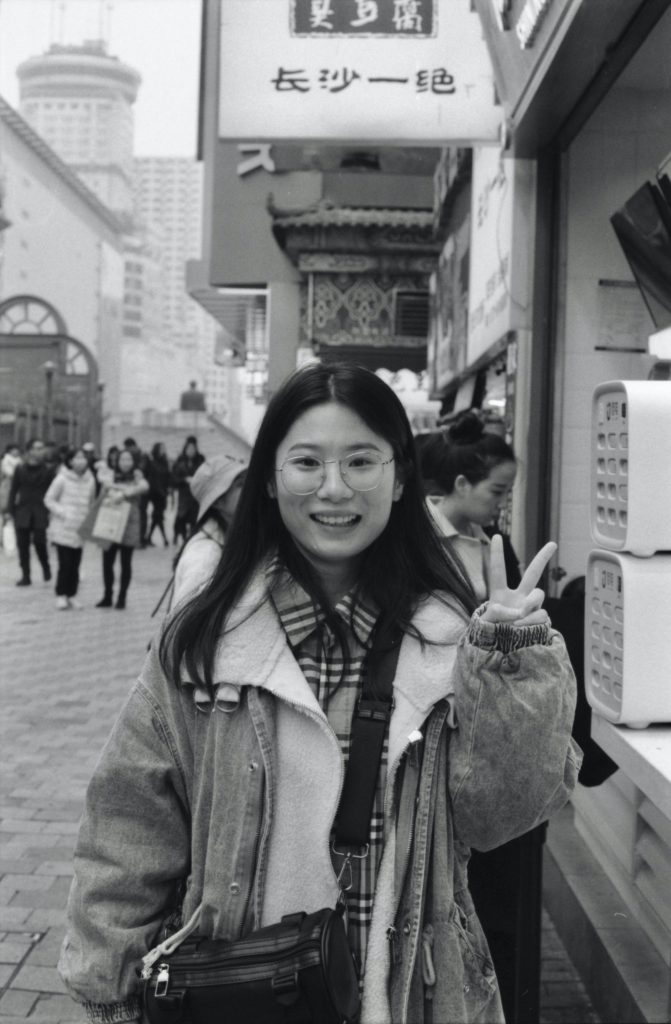
3 replies on “China ‘19”
very nice summary. easy way to let people know what you’ve experienced. and cool tool for your later self to re-experience everything. have you taken the photos with your new camera?or are these analog photos?
Yoh Levia,
all black & white pictures were shot on film. They were taken either with my old (Minolta 700si) or my new analog camera.
I-i-iiiiii!
Hey Mirco
Glad to read from your trip. Very interesting that yo took language school in 阳朔. Did you know over my bed is a big picture of Yulong River we took on a electric scooter ride years ago. They said, we could drive 40km with they electric scooter. But unfortunately after 25km we had to go back by our feets. Anyway was a great impression and 阳朔 is a great place to visit at least once in a lifetime! Cheers, let me know when you are in zurich for a beer.